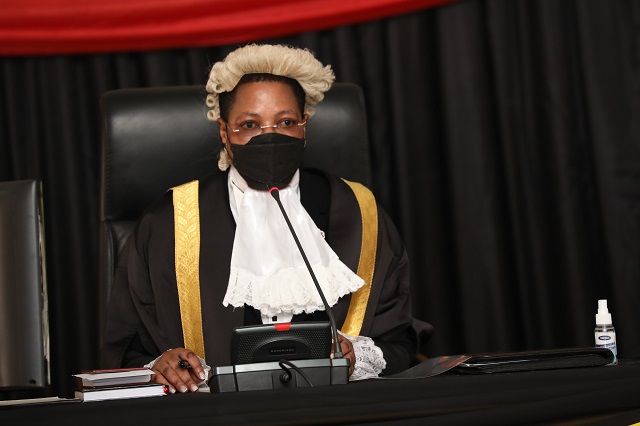
Kampala, Uganda | THE INDEPENDENT | Members of Parliament have demanded a progress report regarding the proposed merger of departments and agencies.
In February 2021, Cabinet approved recommendations for the rationalization of government agencies, commissions and authorities. The overall objective was to eliminate structural ambiguities, functional duplication, overlaps, wasteful expenditure and realize short term and long term savings.
During the plenary session on Tuesday chaired by Deputy Speaker Anita Among, MPs raised concern that some government entities have relaxed their services in some areas due to the awaited merger.
David Kabanda, the Kasambya County MP said that even funding to some entities had been cut and cannot provide the required services to the people. He cited the Rural Electrification Agency (REA).
Joseph Ssewungu, the Kalungu West MP said that the government needed to provide parliament with a definite timeline when the agencies will be merged.
In his response, Minister of Public Service, Muruli Mukasa said that his ministry will study the agencies and later present a report to parliament.
In May 2021, the tenth Parliament learnt of a proposed omnibus law by the government that would facilitate the merger and disbandment of agencies created by Acts of Parliament and those that are constitutional.
This was carried in a statement by the then Minister of State for Public Service, David Karubanga who presented on the floor of parliament modalities for effecting the mergers of selected government agencies, yet most of them are established by Acts of Parliament.
Karubanga said that the process would have legal, administrative and financial implications which include amending laws especially for the agencies that were created by Acts of Parliament and those that are constitutional. He further reported that the projected funds that will be spent during the process in the short term is 988.12 billion Shillings and that the cost-saving items considered are operational costs including rent and the entire development budget.
The government said that the exercise will require a critical study, analysis of the mandates, roles, functions, workload and structures of 18 government ministries and offices and 97 agencies with a view of effecting mergers, mainstreaming, functional transfers to support improved service delivery.
Parliament also then learnt that a secretariat that had been set up to coordinate the merger implementation process in two years had come out with a detailed plan. The first phase (the financial year 2021/2022) would focus on a comprehensive review of 18 government ministries and 97 agencies that are affected by the merger, mainstreaming and transfer of functions.
The second phase (the financial year 2022/2023) would focus on the remaining 6 government offices, ministries and 61 agencies that were recommended for retention.
The proposal to merge agencies follows an Internal Security Organization –ISO report demanded by President Yoweri Museveni for information regarding the expenditure of ministries and agencies.
The report revealed that a lot of money was being spent on duplication or overlapping functions of ministries and agencies. ISO then recommended reforms of merging agencies and disbanding some to cut on wasteful expenditure. The agencies in question account for 37 percent of the government’s wage bill and scrapping them would save 1 trillion Shillings a year in salaries.
*****
URN
 The Independent Uganda: You get the Truth we Pay the Price
The Independent Uganda: You get the Truth we Pay the Price



